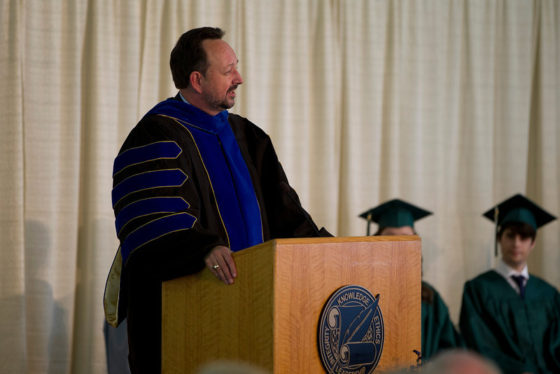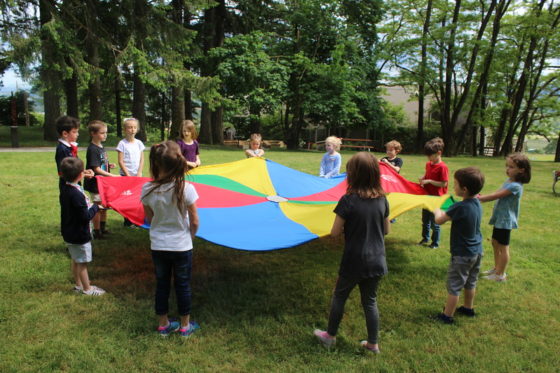We Don’t Need School Reform, We Need School Transformation
I just read a great article about a “cutting-edge education experiment at Gray-New Gloucester Middle School†in Maine, that “could become the norm in Maine if Education Commissioner Stephen Bowen has his way.â€
The story is about a switch to proficiency.  One Maine teacher said “It used to be like, ‘Oh well, they got a D,’ and we moved them on anyway. Now the students get the help when they need it.† Wow.  This is fantastic.
What is going on in the classroom?  “[S]tudents from as many as three grades can be found studying together…  Instead of letter grades, student performance is based on a numbered system in which 4 means proficient and a 1 or 2 means the student has more work to do before moving on. And teachers who were used to pulling entire classes of students through the same lessons at the same speed now are responsible for monitoring each student’s progress individually.â€
Wow! Â Hmmm. Â Where have I seen that before? Â Here at Delphian! Â I get excited when I see anyone freeing up the students (prisoners of time), and education focused on individual progress and demonstrated mastery.
Commissioner Stephen Bowen has a dream and a plan to make all of Maine’s schools run like this.  The news story tells about the shift in this new direction.  Bowen’s plan has a name:: “Education Evolving: Maine’s Plan for Putting Learners First”  and a goal “to transition Maine schools to a model in which students have more of a role in organizing their education and more choice in deciding how they master academic standards.â€
Last October he gave a fantastic speech, and he said  there were three challenges:
Challenge 1: Our legacy system isn’t getting the job done.
Challenge 2: Recent initiatives aren’t helping
He said “We need to make some big changes. And this is not, in my mind, a case of nibbling around the edges. This isn’t a situation where we need to adopt a new math curriculum or buy a bunch of interactive whiteboards or something
Challenge 3: Our legacy system was designed for a different century (read my next blog about this.)
Among Bowen’s priorities, I liked Priority 3 the most.
Priority 3: Multiple pathways for student achievement
In his words “[a]t long last, can we move away from the assembly-line, age-based grade level system we’ve endured for generations, and move to a system where students move upon demonstration of mastery ? We can. It is happening in schools right here in Maine, right now.
“…Something that high performing systems do is establish gateways at certain critical points in a student’s academic career, such as the transition from elementary school to middle school. As we build a proficiency-based system, we need to ensure that students are fully prepared to move on ahead in their learning.
“We also need more learning options for students. If we are building a system that puts the needs of students first, can we still cling to a model of schooling where the school the student attends is determined by the student’s street address? … Don’t we need to maximize the use of every educational resource at our disposal — no matter which side of the town line those resources fall on — if we’re going to meet the needs of all kids?
“We also live in an age of anytime, anywhere learning, and if we are going to remain relevant in the lives of this generation of school children, we have to embrace new technologies such as digital learning. Schools can’t be the one place where students are not allowed access to digital learning opportunities.â€
Wow!  He gets it!  He knows students all learn at different speeds, and this varies by subject.  One teacher talked about teaching in a proficiency-based system “It’s the hardest thing I’ve done, but it’s also the best teaching I’ve done…. [B]ecause of this, [the students are] going to be more prepared. They need to know everything before they move on.â€
At Delphian, that’s what we’ve been about from Day 1!  I can’t tell if the article is talking about Maine or Delphian, when it says “most classrooms … are adorned with charts on the walls that mark each student’s progress through milestones, whether it’s earth science or long division… Each day starts with meetings between students and teachers…about what the students’ goals are for that day. All of it is carefully tracked with software and individual assessment folders.â€
Hmm!  This is great news!  I couldn’t have said it any better, and I can’t wait until this becomes old news in all 50 states!
Posted by Mr. Mark Siegel on Sunday June 3, 2012 at 11:23AM









